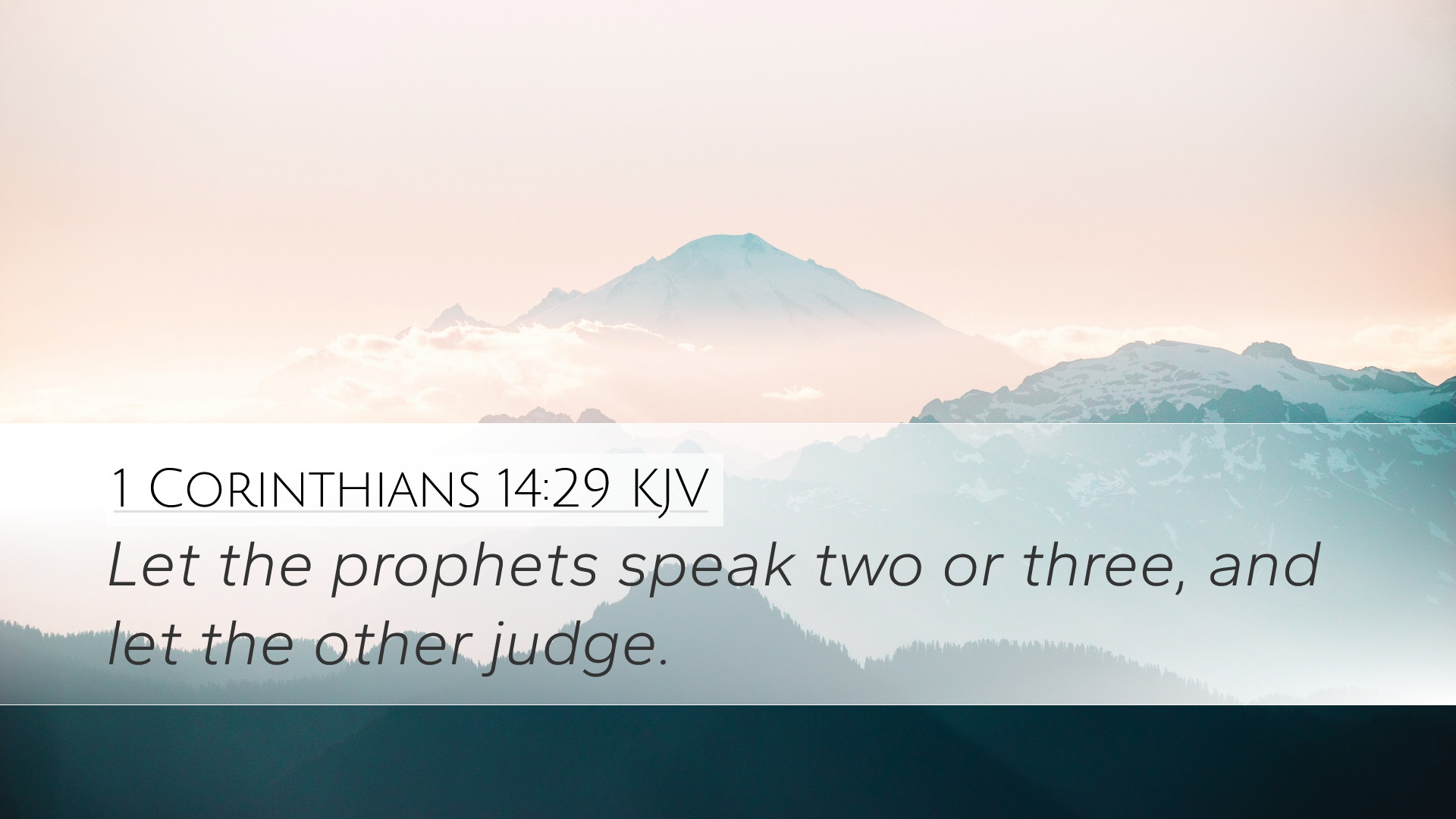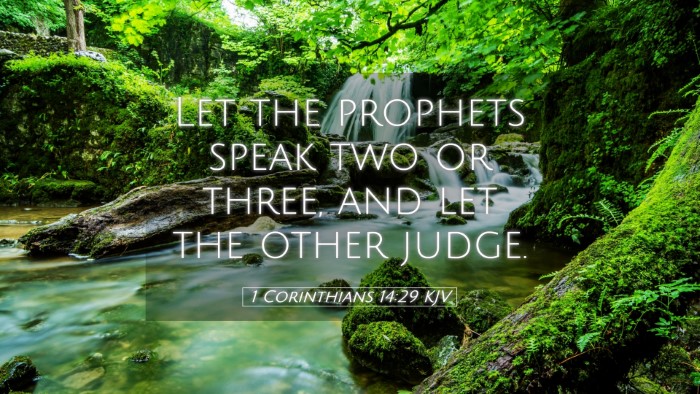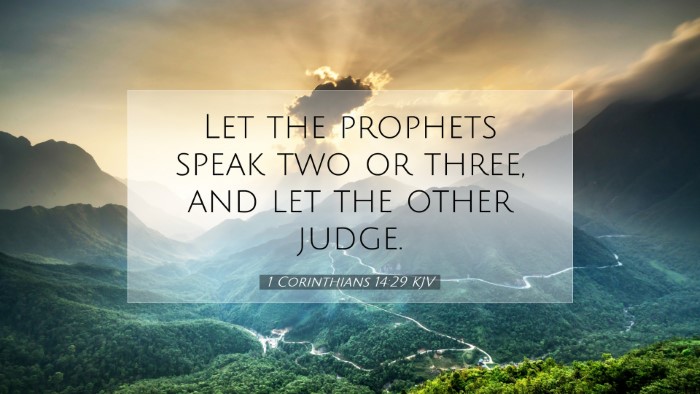Commentary on 1 Corinthians 14:29
Verse: “Let the prophets speak two or three, and let the other judge.”
Introduction
The Apostle Paul, in his first letter to the Corinthians, addresses various aspects of church order and the proper use of spiritual gifts. In 1 Corinthians 14:29, he provides instructive guidelines for the exercise of the prophetic gift within the church. This verse shines a light on the importance of discernment and orderly conduct in public worship. It sets forth a framework for evaluating revelations, thus safeguarding the integrity of spiritual ministry.
Exegesis of the Verse
In this verse, Paul mandates that when prophets speak, it should be limited to two or three individuals at any given service. Furthermore, the role of discernment is emphasized by instructing that the remaining prophets (or the assembled congregation) should judge or evaluate the prophecies given. This directive epitomizes the balance between the supernatural operation of the Spirit and the rational, evaluative function of the church body.
Commentary Insights
-
Matthew Henry's Perspective:
Matthew Henry highlights the significance of order in worship. He emphasizes that allowing only two or three prophets to speak prevents confusion and maintains the decorum necessary for the proper operation of spiritual gifts. Henry adds that the other prophets or listeners have the responsibility to judge the messages presented, ensuring that what is proclaimed aligns with Scripture and the truth of God.
-
Albert Barnes' Perspective:
Albert Barnes delves into the cultural context of the Corinthian church, noting that prophecies, while genuine, could potentially lead to disorder if left unchecked. He asserts that the process of judging prophecies is crucial, as not all spiritual utterances are necessarily inspired by the Holy Spirit. This evaluation serves to protect the church from erroneous teachings and to encourage the practice of discernment among believers.
-
Adam Clarke's Perspective:
Adam Clarke's commentary echoes the importance of discernment in church governance. He interprets ‘let the other judge’ as an encouragement for collective involvement in assessing prophetic words. Clarke points out that the prophetic ministry should never be treated as infallible; rather, it is subjected to evaluation by the body of believers, ensuring accountability and alignment with biblical truth.
Theological Implications
This verse raises critical theological themes concerning authority, revelation, and community. Firstly, it implies that while God speaks through prophets, human responsibility in discerning His voice cannot be understated. Secondly, it invites a collaborative approach to spiritual leadership, where both the prophetic ministry and the congregational body interact meaningfully.
Additionally, the instruction to judge prophecies confirms the high value placed on Scripture as the ultimate measure of truth. Prophets, while endued with the Holy Spirit, still require scrutiny, underscoring the necessity for scriptural and communal accountability.
Practical Applications
- Church Order: This verse serves as a guideline for maintaining order during worship services. Pastors and church leaders can find concrete wisdom in ensuring that spiritual gifts are exercised with structure and purpose.
- Encouragement of Discernment: Congregants are encouraged to actively engage in the judging of prophecies, fostering a culture of discernment where every member contributes to the health of the congregation.
- Promotion of Accountability: Leaders should set an example by being open to scrutiny and evaluation, modeling the practice of accountability within spiritual oversight.
Conclusion
1 Corinthians 14:29 succinctly portrays an essential principle of church governance— that of maintaining order without stifling the Spirit’s work. The guidelines Paul provides not only speak to the context of the early church but resonate with principles applicable to contemporary worship settings. Hence, pastors, students, theologians, and scholars alike must earnestly consider the lessons embedded within this profound directive.


